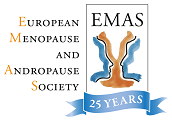Hsin-Fang Chung et al Maturitas 2021 Nov;153:1-10.
Abstract
Previous reviews have found that menstrual and reproductive factors are associated with lung cancer risk, but evidence on a possible association with age at menopause is inconsistent. This review aimed to determine the association of early and late menopause with lung cancer risk. Publications were reviewed and obtained through PubMed, EMBASE and Scopus database search up to March 2021. The pooled relative risks (RRs) or odds ratios (ORs) and corresponding 95% CIs were estimated using a random-effects meta-analysis. Twenty-eight studies were included in at least one meta-analysis, of age at menopause (lowest vs highest; n=26), early menopause (≤45 vs ≥50/51 years or middle; n=11), late menopause (≥55 vs <50 years or middle; n=6), or continuous (per additional year; n=6). We found that early menopause was associated with lung cancer in both cohort studies (RR 1.26, 1.10-1.41; n=6) and case-control studies (OR 1.38, 1.11-1.66; n=5). Three large cohort studies showed that the increased risk was primarily evident among smokers (RR 1.38, 1.10-1.66) but not among non-smokers (RR 1.02, 0.63-1.40). Four case-control studies found that late menopause was also associated with lung cancer (OR 1.29, 1.08-1.51); conversely, the association was mainly observed among non-smokers (OR 1.35, 1.11-1.59) but not among smokers (OR 1.05, 0.75-1.36). In conclusion, evidence from this review indicates an increased risk of lung cancer in women who experience early menopause (≤45 years), although this risk is primarily among smokers. Large prospective cohort studies are needed to confirm the association between late menopause (≥55 years) and lung cancer risk among non-smokers. PROSPERO registration: CRD42020205429.

